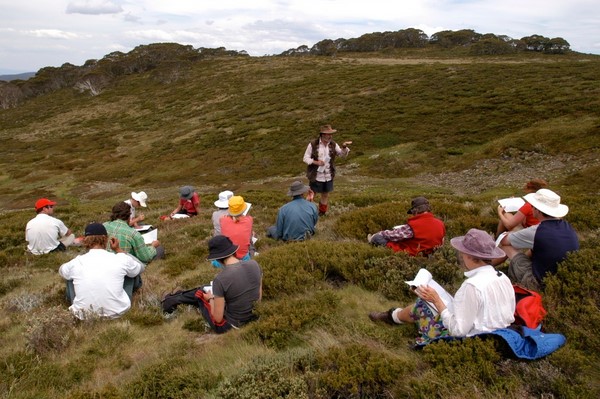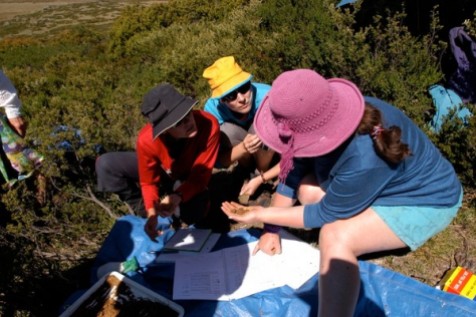The Alpine Ecology Course was conceived as a means of improving the ecological knowledge of people with responsibility for managing alpine land. Since its inception in 1989, more than 1000 people have completed the course. They include national park rangers, alpine resort staff, university teachers and researchers, environmental staff from local, state and commonwealth government departments and agencies, and members of the public interested in conservation of the alps.

The course provides an opportunity to learn about the plants, animals, landforms and soils that make up alpine ecosystems, and their significance for landuse and current conservation issues. Most of the 5-6 day course is in the field, with an emphasis on practical demonstration and field experience for all participants.
A formal knowledge of botany, zoology or soils is not assumed. During the course, participants learn how to collect and interpret environmental information and use it to understand and appreciate the environment. The methods used for studying alpine landscapes can also be applied to other areas.
The aims of the course are: (i) provide the participants with an understanding of the inter-relationships between different components of alpine ecosystems (landscape, soil, vegetation, water, fauna) and (ii) provide a basic introduction to the scientific method: the collection of data (measurement), and the interpretation of these data.
These skills are important because land managers need to make management decisions that are informed by science, and therefore must have some capacity to determine the robustness of scientific data and arguments.


Course sessions include:
- Introduction to Australian alpine landscapes and ecosystems.
- Sub-alpine and alpine soils and landforms.
- Vertebrate and invertebrate ecology and their role in alpine and sub-alpine ecosystems.
- Alpine plants and vegetation communities – how to identify plants and define vegetation communities.
- Threats posed to alpine ecosystems by invasive plants and animals.
- Plant ecology and ecological processes in the alpine environment – the history and evidence of vegetation change.
- The effects of fire on alpine and sub-alpine ecosystems.
- Introduction to methods for surveying vegetation and techniques for monitoring vegetation change.
- Land uses and impacts in the alpine environment; history of soil and vegetation disturbance on the Bogong High Plains.
Participants can expect to spend each day in the field in variable alpine weather. Field days may be long and involve considerable walking.
We are pleased to announce the 2024 Alpine Ecology Course will be held on 3rd – 8th of March at Falls Creek Resort and the Bogong High Plains.
Please find the course flyer here and application form here.
For enquires or more information email: alpine.ecology@latrobe.edu.au
